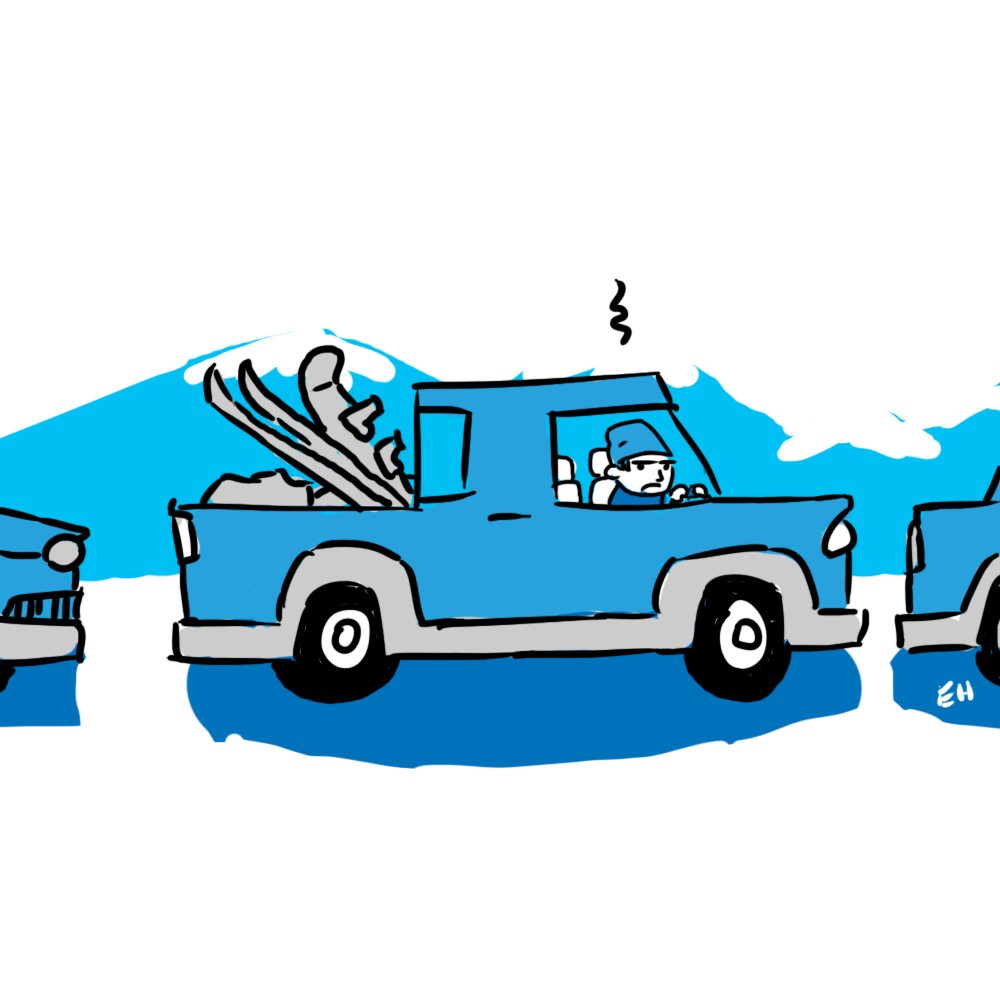Pioneers, Coloradans and tourists alike will be gaining a new eastbound lane this winter on Interstate 70, but not without paying a high price.
Many Pios will encounter this new lane as they head back from the slopes this winter, but with such a lofty fee, it’s unlikely that students will hand over the money to earn a slightly faster commute back to campus. For the majority of college students, money is typically tight, and trips to the mountains are not a cheap activity, which is why this fee will likely deter college students from using the added feature.
With hopes to decrease winter traffic, the toll lane will open to the public in December of 2015 and will feature a dynamic tolling system, which will allow the price of travel to fluctuate depending on the frequency of traffic.
The Colorado Department of Transportation (CDOT) estimates that this third lane will save drivers an average of 30 minutes on their Denver-bound drives, but this new I-70 feature comes with a cost, one that many DU students are not willing to pay.
“I would prefer to not use the toll-lane, but I guess it depends on how much it was. If it was $5, I would use the new lane to get out of the traffic,” said junior Eliana Lerman.
Beginning at Empire Junction and ending at the Veterans Memorial Tunnel in Idaho Springs, the new toll lane will span 13 miles heading eastbound on I-70.
According to The Denver Post, the $72 million project was paid for by both federal and state funds, but an additional and staggering $24.6 million loan was also taken out for the I-70 lane construction.
Over the coming years and ski seasons, CDOT plans to pay back this exorbitant loan through the tolls that are collected from the average of 700-900 vehicles that are estimated to use the new toll-lane each hour during the winter months’ peak travel periods. Although this lane is likely to benefit its users, it’s unlikely that it will be completely utilized, especially by college students, simply because the fee is too high for individuals on a budget.
“I guess it’s a good way for the state to make money, but it’s your choice if you want to pay for it and skip the traffic. If the traffic was really bad and I could split the price with a full car of friends, I would pay,” said DU freshman Matt Ludwig.
According to CDOT, the Mountain Express Lane will only be available to travelers during high frequency travel periods, which are believed to be winter weekends.
The toll, which is estimated to range from $3 to $30 depending on the day and the traffic, makes the Mountain Express Lane the priciest toll road in the United States. At $30 for 13 miles, drivers would be paying approximately $2.31 per mile.
“I don’t think a fee is worth it. I’m a very cost-sensitive person and I feel like that fee is really expensive and not worth it, especially with the price of gas,” said DU sophomore Michaela Kingston.
Dynamically priced, CDOT hopes to keep traffic constantly flowing in the Mountain Express Lane. Meant to be an added choice for travelers, the lane will have a lower fee when I-70 needs vehicles in the lane and the price will rise when the toll lane is reaching capacity.
“There’s no way I would pay $30 to save 30 minutes of time,” said DU freshman Austin Lin.
I-70 is infamous for mile-long stretches of traffic and stagnant cars during the winter months, but the uncertainty of the Mountain Express Lane and its potential success still have over two months to be revealed.
“I don’t use that road [I-70] often enough that I would have to use that lane. If I were to go, I would try to plan my trip around traffic. But, if I could guarantee that it was only going to be a $2 charge, I would use it. Even then, if there was a risk that it would be $30, hell no,” said DU senior Dana Kiel.
A smart money-making move for the state and for CDOT, the toll-lane might scare off some, especially penny-pinching DU students, but ultimately it has the potential to be utilized and productive for those seeking a shorter post-skiing commute.










